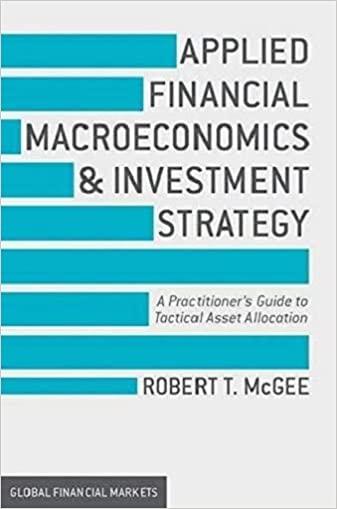Question
1. Three founders own all the stock but have different amounts. Jane has 40% and the other two, Aneesh and Tjada, have 30%. Ten million
1. Three founders own all the stock but have different amounts. Jane has 40% and the other two, Aneesh and Tjada, have 30%. Ten million shares were issued. They then raise $400,000 from Aneeshs rich Uncle Manu and $600,000 from Janes mom, Sarah. For investing this money early Manu and Sarah receive a 20% discount to the next round. The Series A closes with an additional $4 million being raised. The post-money valuation is $15 million. a. What is the pre-money valuation? b. What % of the company does Jane, Aneesh, Tjada, Manu and Sarah own after Series A close? List each of their names and amounts separately.
2. Two EMBA students, Phil and Tracy launch a company. Tracy has 36% and Phil 64%. They agree on three year vesting of founders stock that begins as soon as they start the company. After one year Tracy and Phil agree she isnt staying with the company. Phil decides at that point to set aside 30% of the company to bring on the top talent he needs. After he does this how much stock does Phil own? How much does Tracy own?
3. Dipender and Tiffany bootstrap their food product business with some recipes from Tiffanys grandmother, agreeing to split the company 50/50. They raise money in a hot market and get a pre-money valuation for $15 million. Two venture capital firms split the Series A round of $20 million and ask the founders to set aside an option pool of 20%. They do not get their products into the markets they want as quickly as they had hoped and they ran into production problems. Running short of money they have to raise another $20 million and they hope this is all they have to raise before they can finance growth out of cash flow and debt. They have firm commitments for large orders from Kroger and Costco. But this time the capital market is very tight and all they can find is money valued at their last round close. And to add more pain the new investors require that the option pool remain at 20%.
a. What is the post-money valuation after Series A?
b. What percentages do Dipender and Tiffany have at that point?
c. What is the pre-money valuation of Series B? d. Who has what share of the company at the close of Series B?
Step by Step Solution
There are 3 Steps involved in it
Step: 1

Get Instant Access to Expert-Tailored Solutions
See step-by-step solutions with expert insights and AI powered tools for academic success
Step: 2

Step: 3

Ace Your Homework with AI
Get the answers you need in no time with our AI-driven, step-by-step assistance
Get Started


